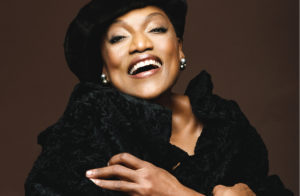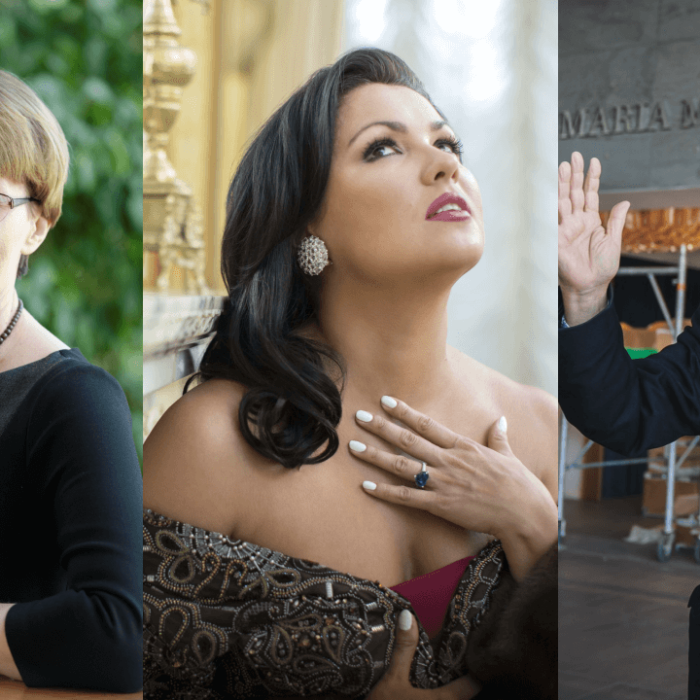
Editorial: Assessing the State of Modern Opera Criticism Per Legendary Soprano Jessye Norman’s Famed Quote
By Polina LyapustinaRecently, mourning the death of truly great soprano Jessye Norman, many opera singers, directors, and other professionals shared an extract from her amazing interview for BBC HARDtalk, in which she covered many important topics on the opera industry and education.
But what people shared was a very particular short piece, where she shared her thoughts on opera critics.
Question: Did the critics infuriate you throughout your career? I just want to find out how you respond to critics who take a stand on something you’ve worked so hard on. That is so much an expression of your personality. And then they fell free to write this sort of stuff.
Norman: Well, they might write it, but darling, I don’t read it. I don’t need it. I know whether or not I’ve done on stage what I intended to do that night […]. So whatever I am able to do, I’m giving all of that I’m able to do on that particular night. And if it doesn’t suit somebody, who is sitting there not having paid for their ticket and they find it not to their liking? What does it matter? Who are they? They are not my friends, they are not from my family, they are not people who work with me or coach me and have been any way influential in my life. So why should it matter what that person says?
And I find necessary to reply and not to this particular interview, which I find reasonable and fair, but to the wave of the negative celebration this particular piece caused.
When did we start to think that an opera critic is just there to share one’s own opinion on someone’s singing? Sorry to say this, but I would rather die than spend my life concentrating on somebody’s performance.
Some Historical Context
When opera began, theaters were the center of social life, so it was no surprise that the sharpest topics snuck on stage shortly. And for centuries, what you could see on stage affected the minds of generations. What could people learn from it? What was the purpose of this influence? Who did lead and cause it? All those questions were very critical.
And it was in this context and situation that the need to reveal the truth and hidden background of what was onstage caused the emergence of the profession of a critic. Critics worked for the audience, reminding them that opera or theatre was not only entertainment. They were influential and worked to uncover the context. Opera critics (like Alfred Kerr) had attacked the Nazi Party publicly very early before World War II and many of them were arrested and executed when Hitler came to power.
World War II changed a lot, the cities lay in ruins and in the midst of all this confusion, we missed how opera and theatre lost their social values, replaced with mass media and TV. Since then, opera became a special treat for refined opera lovers, the art concentrated on a perfectly shaped performance. Context and meaning faded into the background. So the new generation of critics started to compete on how to describe the shape better. Trying to catch up on the importance of their predecessors, they sometimes were picky and rude. With this image of an opera critic, we stepped into the new millennium.
But Change…
But the world has changed again and opera is now an industry. And yet before I thought it was a problem, I recently found that this very transformation caused a rise in opera criticism.
Thinking that big money is given for the sake of art is too naive for our times. And the opera industry needs a lot of money. Opera is great and so it has a great influence. Contributing their talent or granting funds, people obtain this impact. But going to the opera house, you think about who receives power over your mind the last.
While the intentions of power holders are hidden in choices they make for us, whether in the repertoire or the team of creators, we are left to watch what’s happening on stage. And there’s so much to think and understand about this experience. Every interpretation (of a singer, director, conductor) is unique. From all these small pieces the full perception emerges, but not all components might be fair, good, and true. Some values fade, others get highlighted. “What caused these changes and what was the purpose?” one might ask and evaluate.
So the work of a critic has nothing to do with likes and dislikes as we are getting deeper with our perception. What does one need in order to catch the difference? A solid understanding of reality and experience in arts. Art is reflective. Modern interpretations barely deal with the initial idea — and they shouldn’t — we are not living in the 19th century.
As Norman mentioned, we are attending performances for free. But we collect the experience (trends, patterns, interpretations of the most outstanding artists), and then we pay back with unique experiential insights in our subsequent articles.
I believe the great soprano, moreover in young age, met many critics who found their own importance in criticizing singing. They always were and always will be. I think she had to develop an insensitiveness to their criticism, but I beg you not to do that. It is sad to see how protecting her talent from rudeness and disappointment, she might lose an opportunity to find some great fresh thoughts.
If you want to know and see opera as something more than entertainment or to uncover hidden backgrounds; if you need to see another perspective on what you’ve seen; if you want more – then you need opera criticism. Especially, in our age of merciless directors and free interpretations. Singers sing, directors lead, and critics stand for the truth, quality, and morality.
It’s different every time, so I advise you not to miss it.
Categories
Editorials


